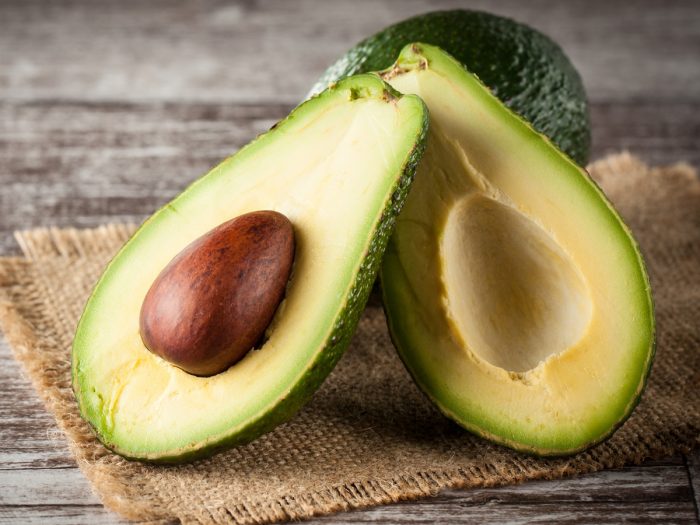Certain people stand in the grocery store and ask – is avocado a fruit or a vegetable? While it is a fair question, the answer may surprise you!
Is Avocado a Fruit or a Vegetable?
Botanically speaking, a fruit is a seed-bearing body that grows from the matured ovary of the flower of a plant. By that definition, an avocado is a fruit, as the large stone in the center of these exotic foods is one large seed. In fact, avocados are considered single-seeded berries, although they don’t look much like your average berry. Avocados are also considered fleshy fruits, like apricots, peaches, plums, and tomatoes. [1]
Avocados are notably different from many other fruits, given its green appearance and earthy taste. For that reason, many people assume that it is a vegetable. That isn’t completely false, as every fruit is technically a vegetable (an edible part of a plant).

Fresh avocado Photo Credit: Shutterstock
Not only are avocados a bit of a mystery in terms of its classification, but they are also surprising in terms of nutrition.
- According to the USDA, avocados are a rich source of good fats, such as polyunsaturated and monounsaturated fats, as well as vitamin C, vitamin B6, magnesium, and dietary fiber. [2] [3]
- It also has moderate levels of iron and vitamin A.
- As a result, this fruit is associated with improved digestion and better heart health, due to the blood pressure-lowering properties of potassium. [4]
- The vitamin C in this fruit helps to boost the immune system, while the B vitamins are able to stimulate the metabolism.
Difference Between Fruits & Vegetables
We all have been through rigorous training during the first few years at school for categorizing fruits and vegetables. But you realize that all efforts were in vain when later in life your kid asks you if pumpkin is a fruit or a vegetable and you are clueless. Now for all of you who were put in the spot once, we know how it feels. So let’s learn what makes fruits and vegetables different from each other.
- The basic difference between a fruit and a vegetable is made with respect to the culinary and botanical perspective.
- Fruits come from the flowers of a plant whereas, the other parts of the plant are generally known as vegetables.
- Most fruits contain seeds and vegetables are made up of roots, stems, and leaves.
- Culinary enthusiasts have a simple definition for fruits- anything that tastes sweet or tart can be fruit and anything that can be savory, can qualify as a vegetable.
- Most fruits like eggplant, pumpkin, winter squash, olive, zucchini, and pea pods are mistaken as vegetables simply because they do not fit in the culinary definition of fruits. Botanically analyzing, these foods are fruits.
Though hundreds of people are trying to figure out the difference, fruits and vegetables are not a part of any war as both provide beneficial nutrients. In fact, the dietary guidelines suggest that a combination of fruits and vegetables in your diet is bound to contribute to your prosperity! [5]
